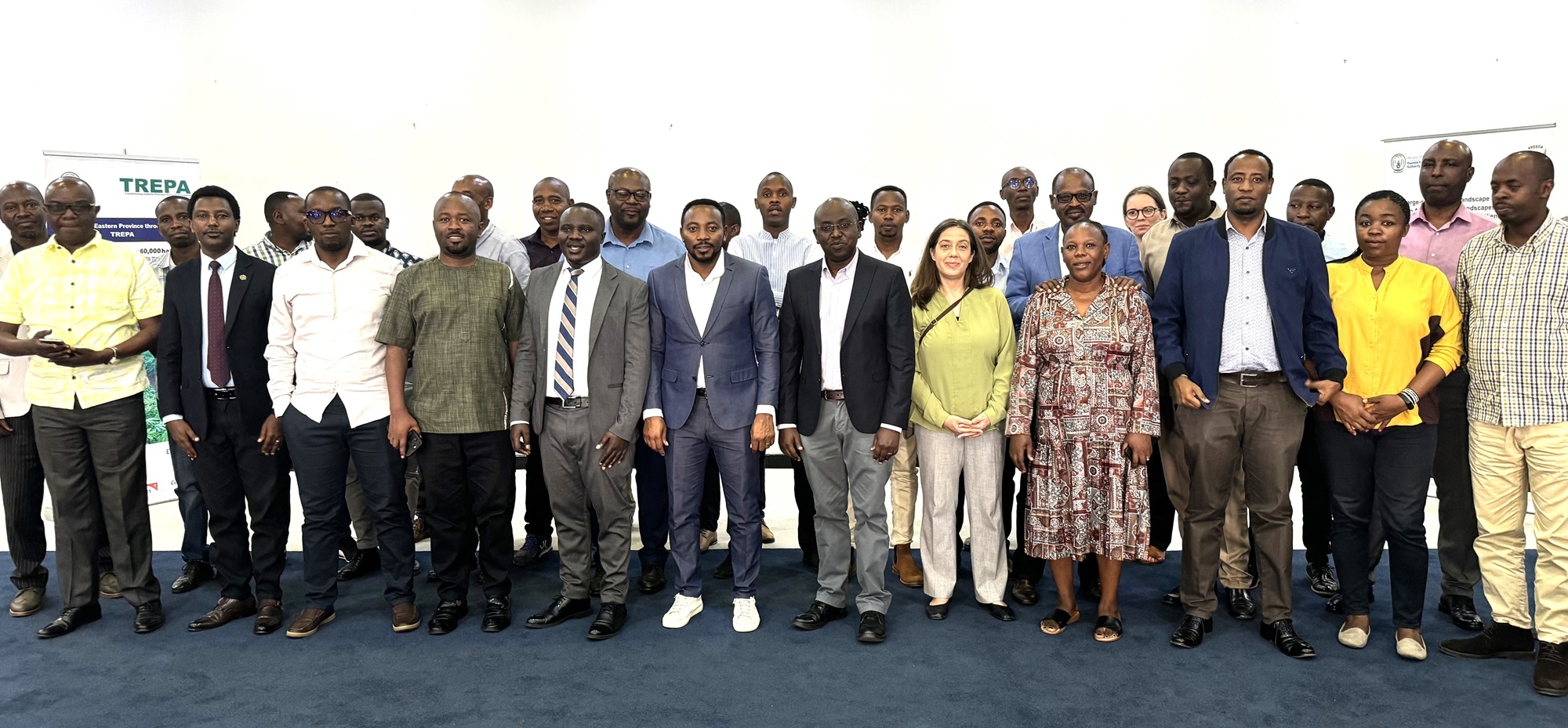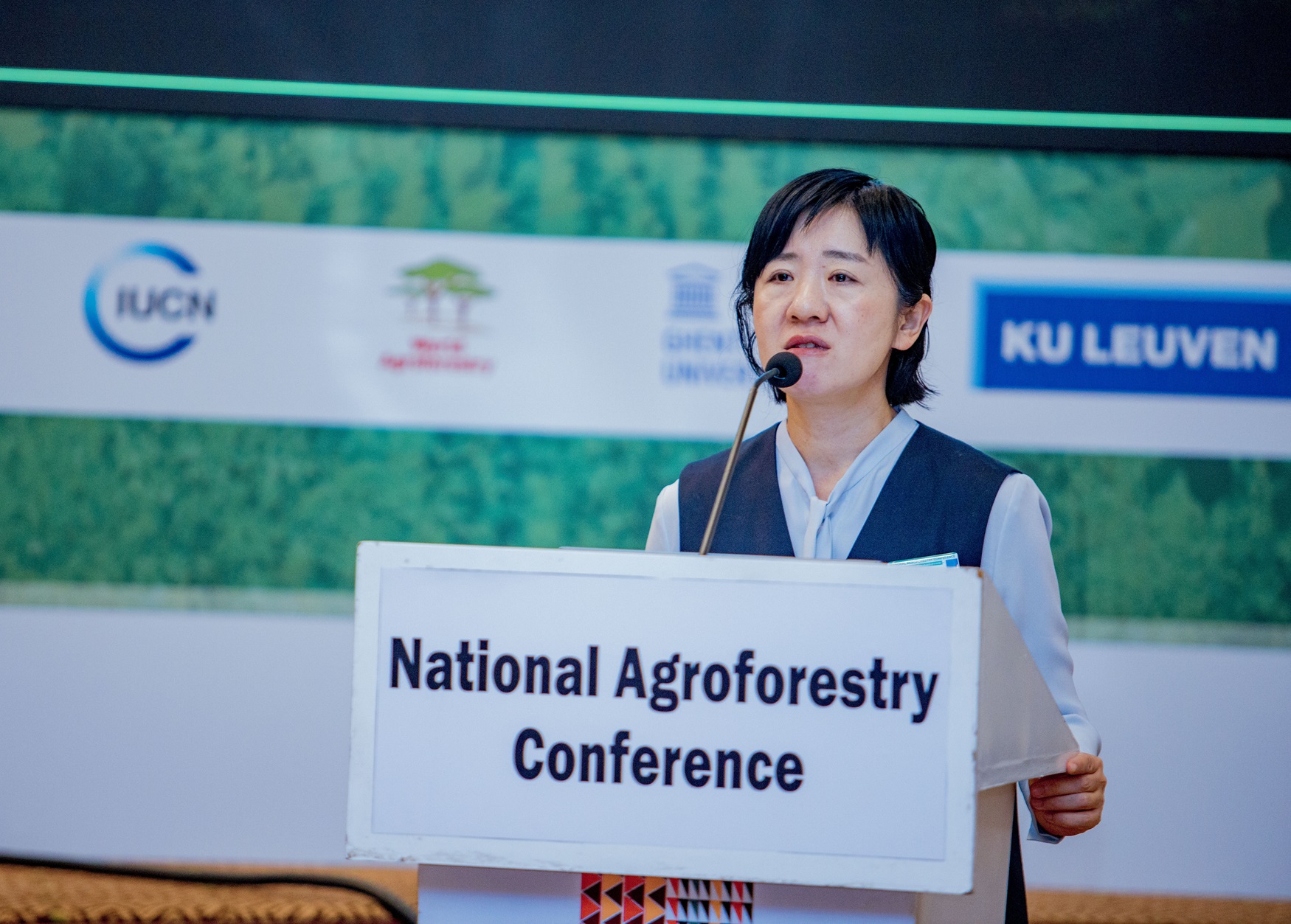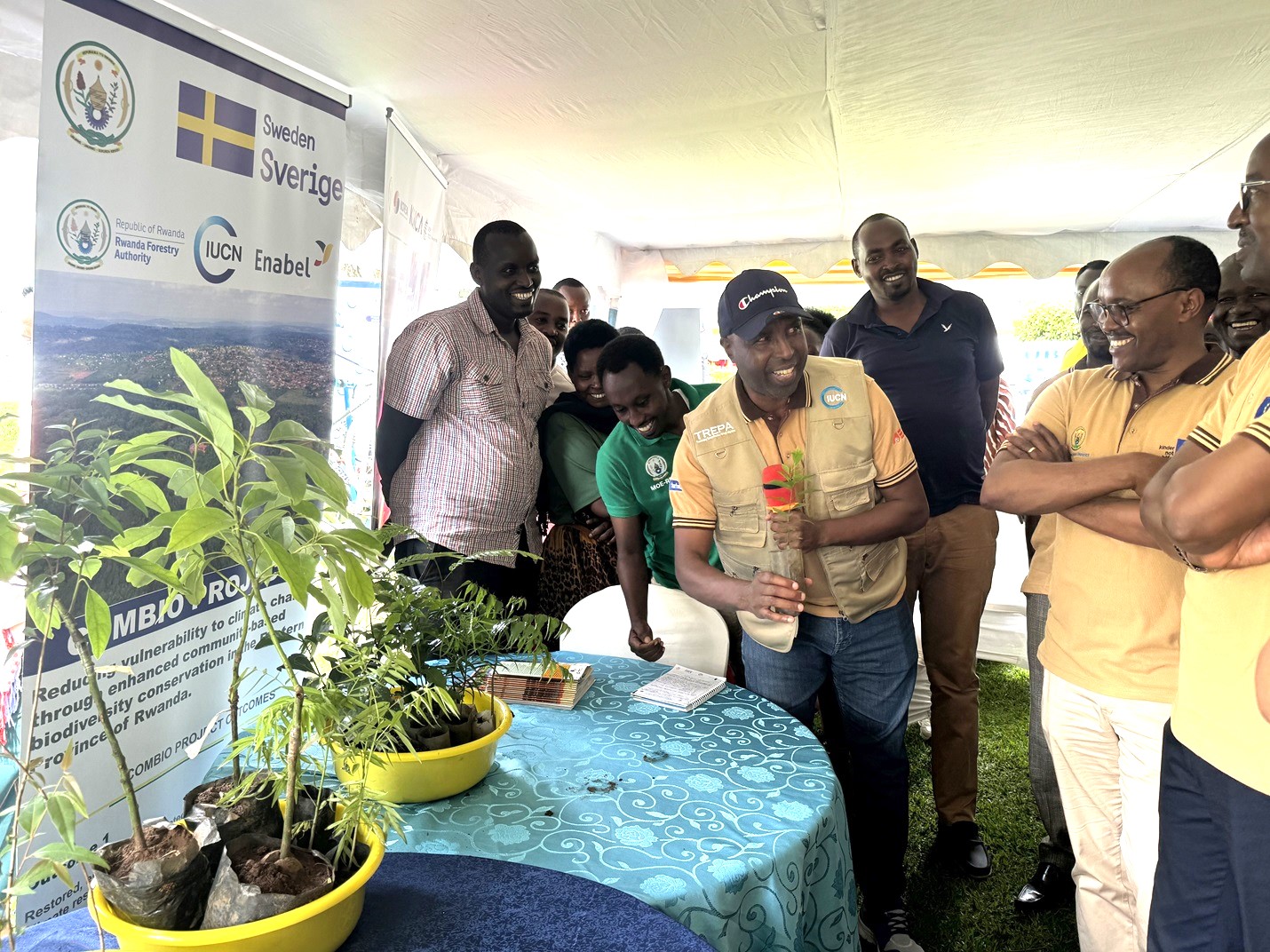Small holder farmers capacitated to cope with the impacts of climate change through agroforestry action research project
Climate change poses a real risk to farmers in the Eastern Province of Rwanda. Farming is highly dependent on weather conditions including temperature, rainfall, wind, pollinators as well as reliable market and many other factors to sustain their crop and livestock production.
Small holder farmers from Gikomero sector in Gasabo District and Kabarore sector in Gatsibo District are among the communities who have been experiencing effects of climate change over the years such as drought conditions and erratic rainfall patterns and biodiversity loss.
To decrease the vulnerability of these communities, the DeSIRA project, funded by the European Union and implemented by International Union for Conservation of Nature (IUCN) in Rwanda in collaboration with Ghent University, ICRAF and partners, is enhancing capacity of smallholder farmers to cope with the impacts of climate change through knowledge sharing actions aligned to the IUCN Nature-based solutions.
The project targets to increase uptake of innovative agroforestry options by the farmers, and fosters their greater resilience through economic and ecological diversification.
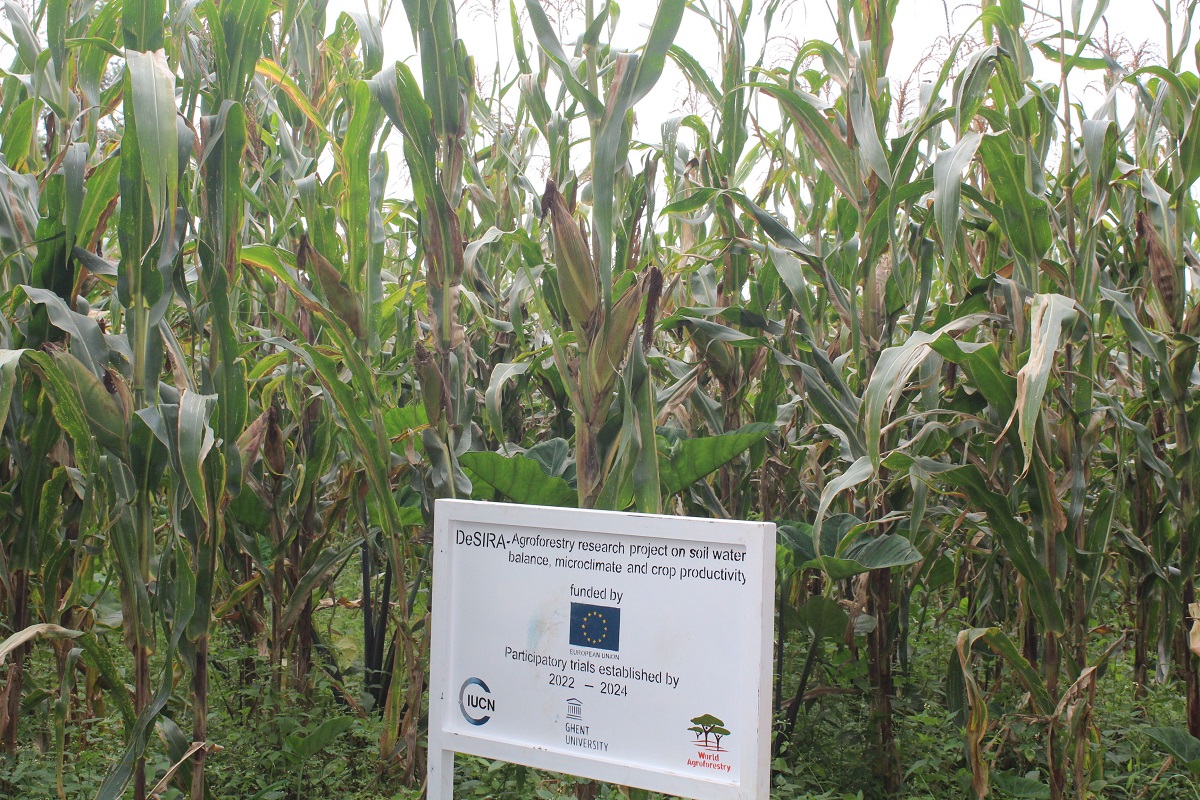 Photo: The DeSIRA project's main objective is to reduce poverty and ensure food and nutrition security in Eastern Province of Rwanda
Photo: The DeSIRA project's main objective is to reduce poverty and ensure food and nutrition security in Eastern Province of Rwanda
Uwamurera Yvonne, mother of three children lives in Gikomero Sector, Gasabo District, is one of the beneficiaries of the DeSIRA project. Mrs Yvonne has been farming back years ago, and the harvest has always been insufficient due to drought problems, irregular and unreliable pattern of rainfall and other variables.
“Some people in Gikomero quitted farming due to yield losses and insufficient harvest along the value chain. We experienced effects of long dry season, and sometimes unexpected long-time rainy season than expected, affecting the upcoming seasons” Yvonne said.
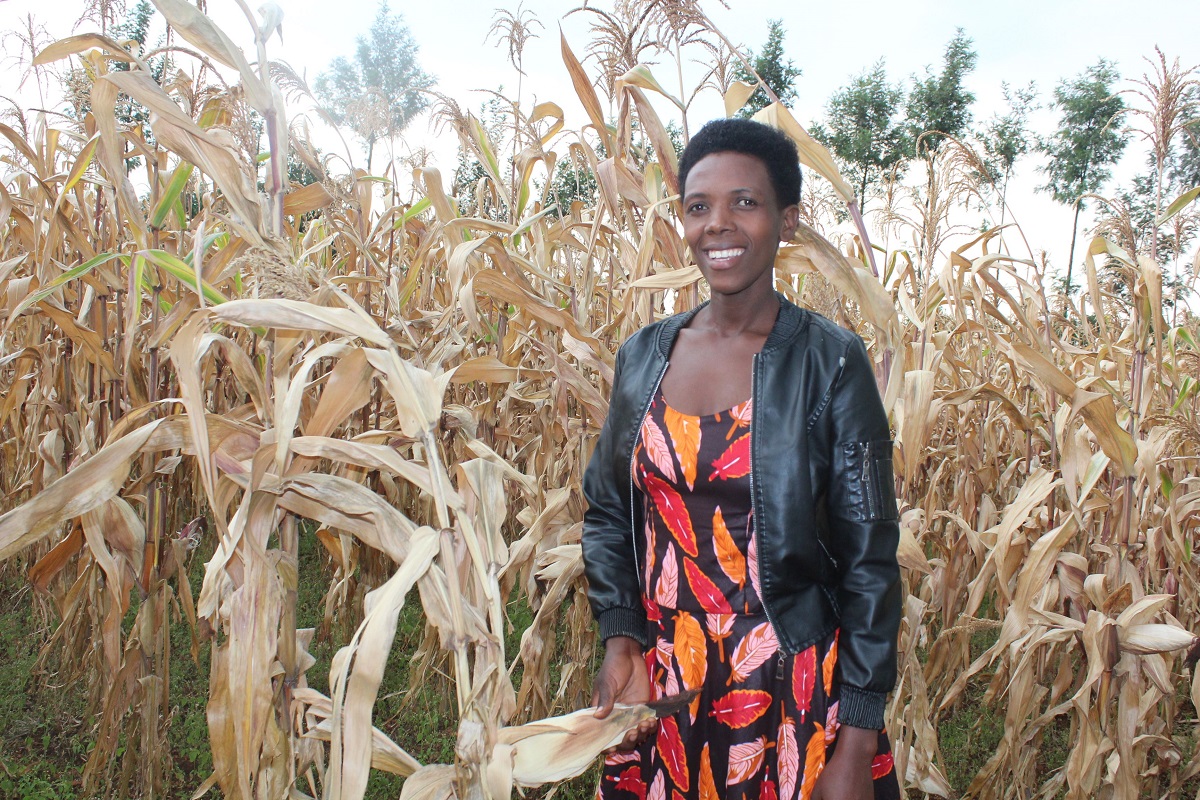 Photo: Uwamurera Yvonne, mother of three children lives in Gikomero Sector, Gasabo District, is one of the beneficiaries of the DeSIRA project
Photo: Uwamurera Yvonne, mother of three children lives in Gikomero Sector, Gasabo District, is one of the beneficiaries of the DeSIRA project
Yvonne narrated that one day they were invited to the Gikomero sector and they were introduced to the DeSIRA project.
“We were seated at the Gikomero sector and we received a team from the DeSIRA project who introduced us to the project, objectives and targets. First and foremost, the project trained us on the role of agroforestry trees in increasing our crop yields, how to efficiently use inputs such as fertilizer, manure, and improved seeds as well as appropriate agronomic practices, harvesting techniques, and tree management (pruning) to avoid crops and trees competition among others”, Yvonne happily narrated.
“The project also trained us on how to avoid inappropriate mixing crops in one farm, but also on how to measure water content in soil using different techniques and tools. We are very much happy about the knowledge we got from the DeSIRA project”, Yvonne said.
The DeSIRA project's main objective is to reduce poverty and ensure food and nutrition security through improved capacities for climate-smart innovations among actors engaged in Eastern Province and Peri-urban of Kigali City.
Mr. Rutagengwa Aphrodis, a resident of Kabarore sector in Gatsibo District, serves as a model farmer whose livelihoods have significantly changed because of the project interventions, in particular through the promotion of climate smart agriculture, agroforestry and harvesting skills.
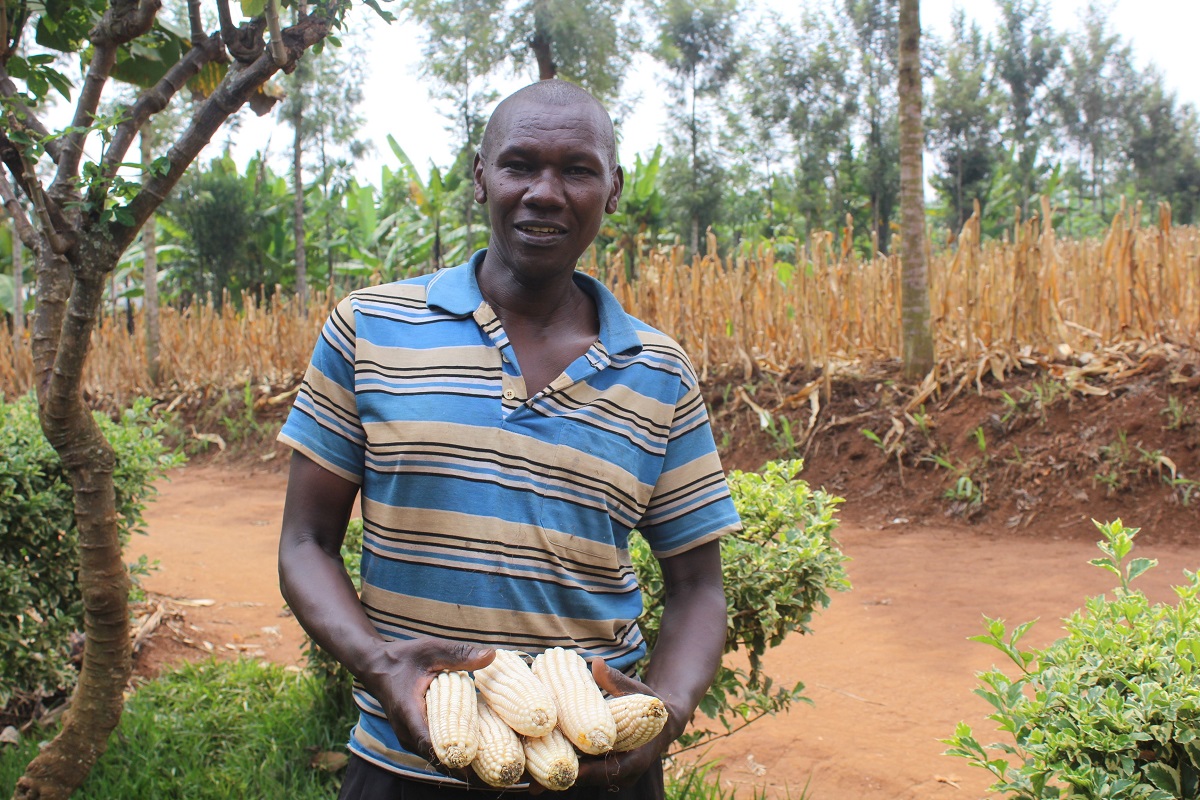 Photo: Mr. Rutagengwa Aphrodis, a resident of Kabarore sector in Gatsibo District, serves as a model farmer whose livelihoods have significantly changed
Photo: Mr. Rutagengwa Aphrodis, a resident of Kabarore sector in Gatsibo District, serves as a model farmer whose livelihoods have significantly changed
Mr Aphrodis testifies that after embracing improved soil stabilization techniques and being trained on modern agricultural techniques such as use of improved crop varieties and proper organic fertiliser application, his yield has increased significantly. This is a story he shared with the rest of the community in Gatsibo District.
“I have been able to harvest over 600kg of maize compared to 200kg he used to yield before, something unusual!” Said Aphrodis with a smile on his face adding that the project improved his income, food security and as well as nutrition.
According to Gatesi Julienne, PhD Scholar under DeSIRA project at Ghent University said that agroforestry trees have long been important to farmers mainly on food, timber, renewable wood energy, fodder, shade for livestock, but it is also noted that they strongly contribute to the soil conservation, soil fertility improvement, and retaining water.
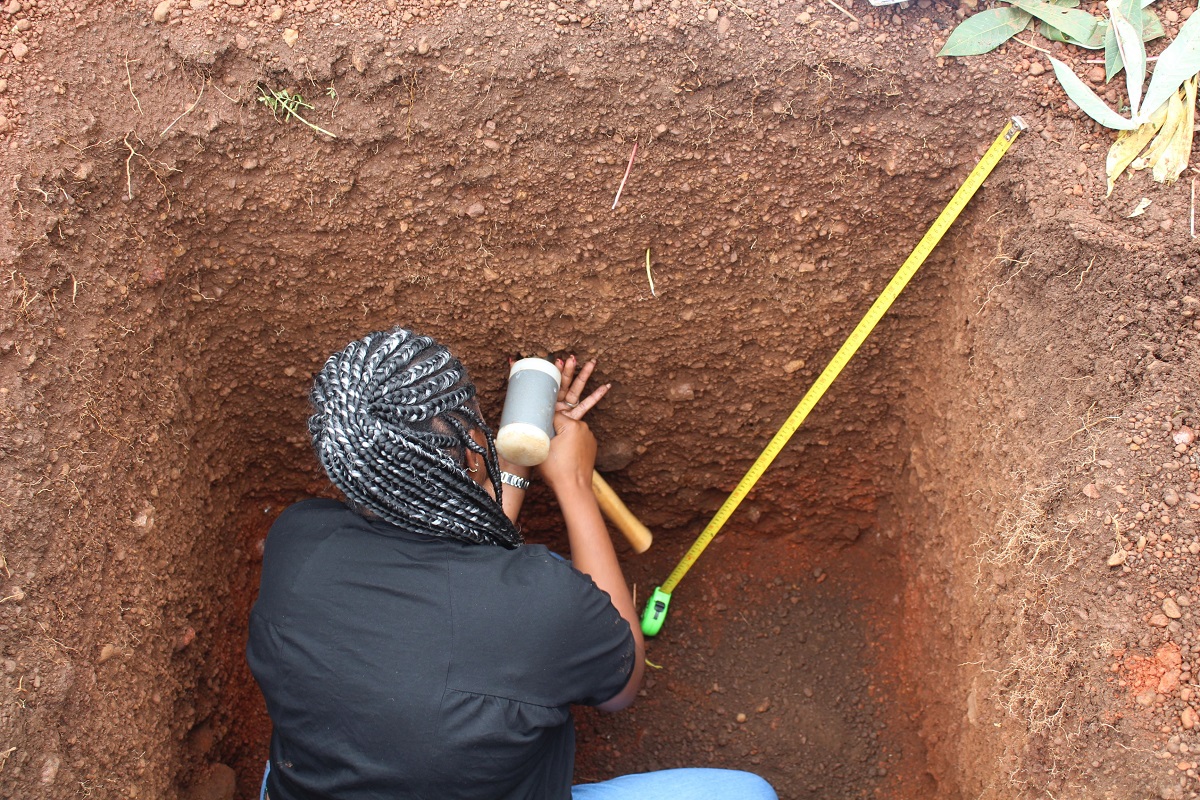 Photo: Gatesi Julienne is conducting participatory research, through farmers’ experience and observations, in Eastern Province and Peri-urban of Kigali
Photo: Gatesi Julienne is conducting participatory research, through farmers’ experience and observations, in Eastern Province and Peri-urban of Kigali
“We are conducting participatory research, through farmers’ experience and observations, in Eastern Province and Peri-urban of Kigali City to assess soil quality change in agroforestry systems.
Farmers appreciated the contribution of agroforestry systems on runoff control, soil nutrients availability, change of soil color and quality, and soil water storage”, said Gatesi Julienne.
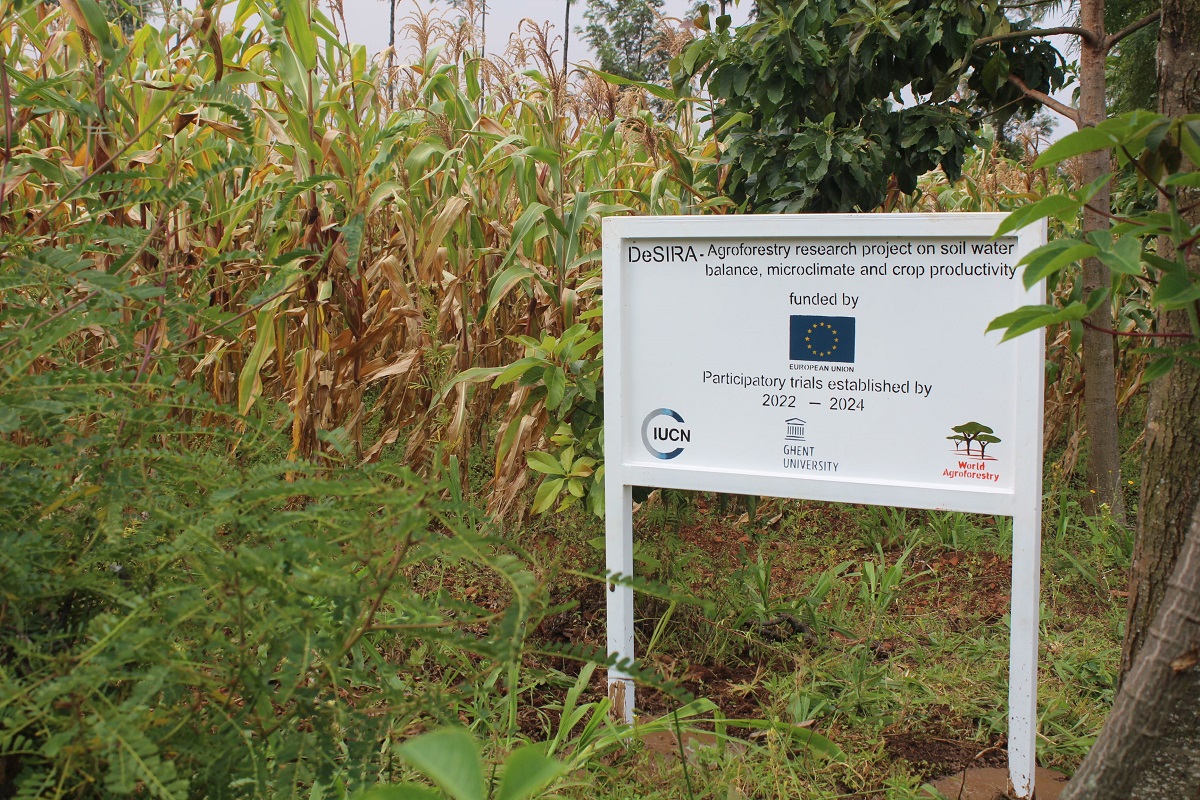 Photo: DeSIRA project is funded by the European Union and implemented by IUCN in collaboration with partners
Photo: DeSIRA project is funded by the European Union and implemented by IUCN in collaboration with partners
Jean Aimé Ruticumugambi another PhD Scholar under DeSIRA project is doing action research on impact of agroforestry systems on carbon sequestration, land restoration, biodiversity conservation, and soil and land productivity while at the same time evaluating the social economic aspect of agroforestry on livelihood development.
“I am glad to have, once again, witnessed the work on the ground done by IUCN through the EU-funded project under DeSIRA.
The particularity of this research-based initiative lies in the combination of both soft and hard deliverables whereas farmers in exchange of availing their plots for research and receiving inputs, they are now able to see the value addition of the IUCN-DeSIRA project in terms of the knowledge acquired in soil’s water retention linked to the practice Agroforestry.” Said Mugeni Kayitenkore, Programme Officer at the Delegation of the European Union to Rwanda.
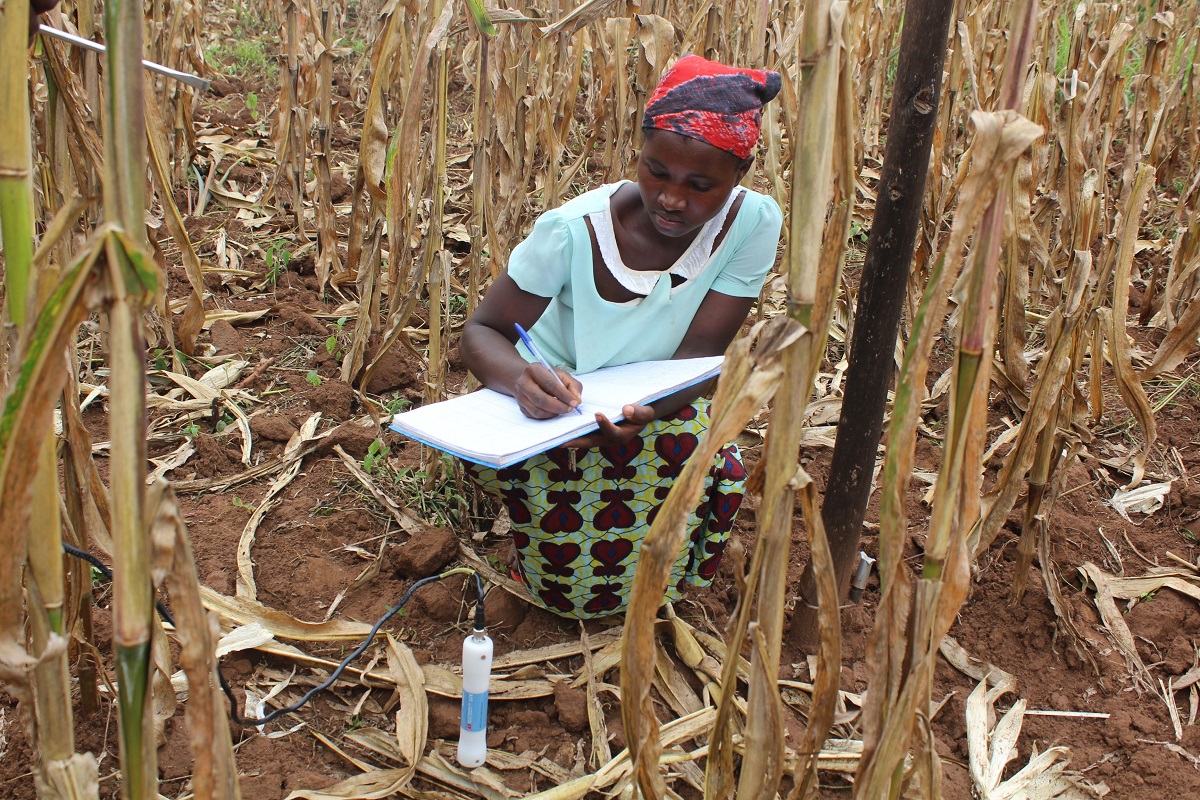 Photo: Farmers are very much happy about the knowledge they got from the DeSIRA project
Photo: Farmers are very much happy about the knowledge they got from the DeSIRA project
“IUCN is grateful for its partnerships with the EU Delegation to Rwanda. Through the DeSIRA project, IUCN hopes to build capacities of the farmers and the local communities for deploying Nature-based Solutions (NbS) so that they can become a NbS champion for future development”, said Kaori Yasuda, IUCN Rwanda Country Representative and Regional Strategic Partnerships & Programme Development Coordinator for Eastern and Southern Africa.
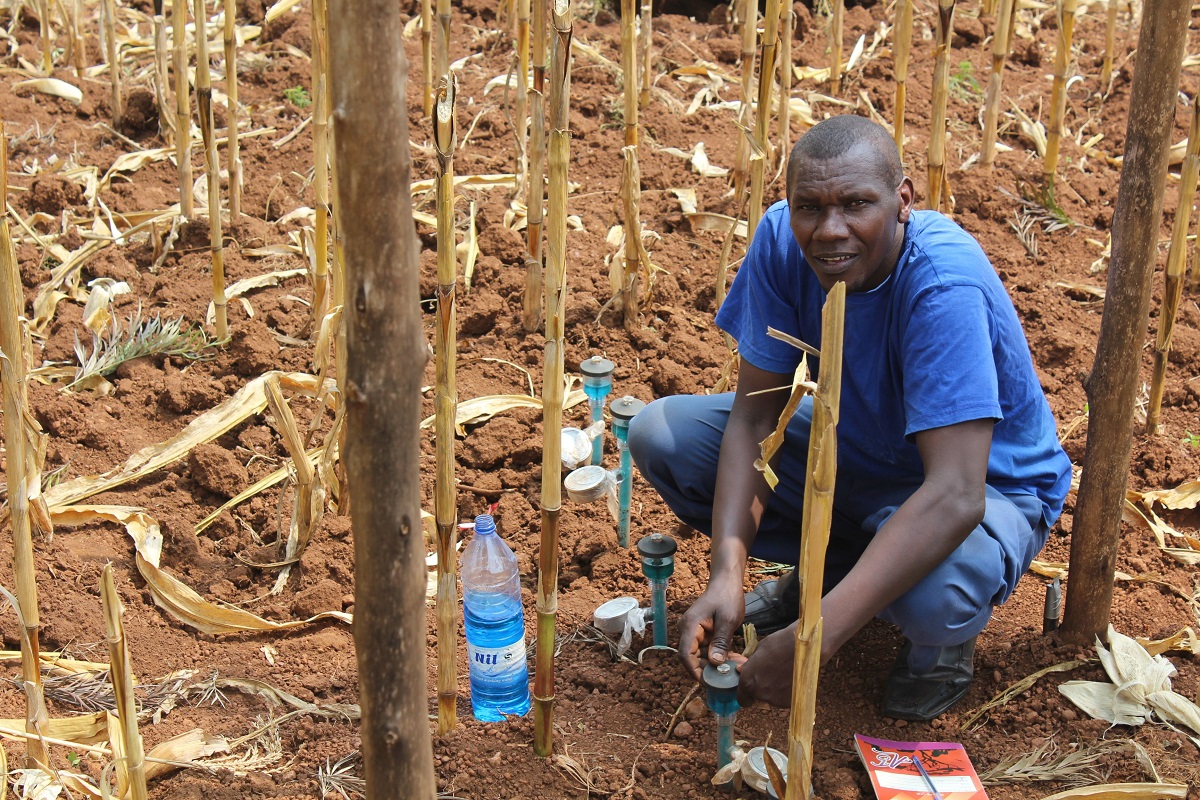 Photo: Farmers got knowledge from the DeSIRA project
Photo: Farmers got knowledge from the DeSIRA project
According to the DeSIRA agroforestry research project preliminary findings showed that agroforestry trees provide a potential restoration solution to land degradation in Eastern Province in particular providing multiple benefits including the reduction of soil loss, increase of soil biomass, carbon and nutrients, provision of essential farm resources such as a livestock fodder, fruits, fuel wood for cooking and construction among others.
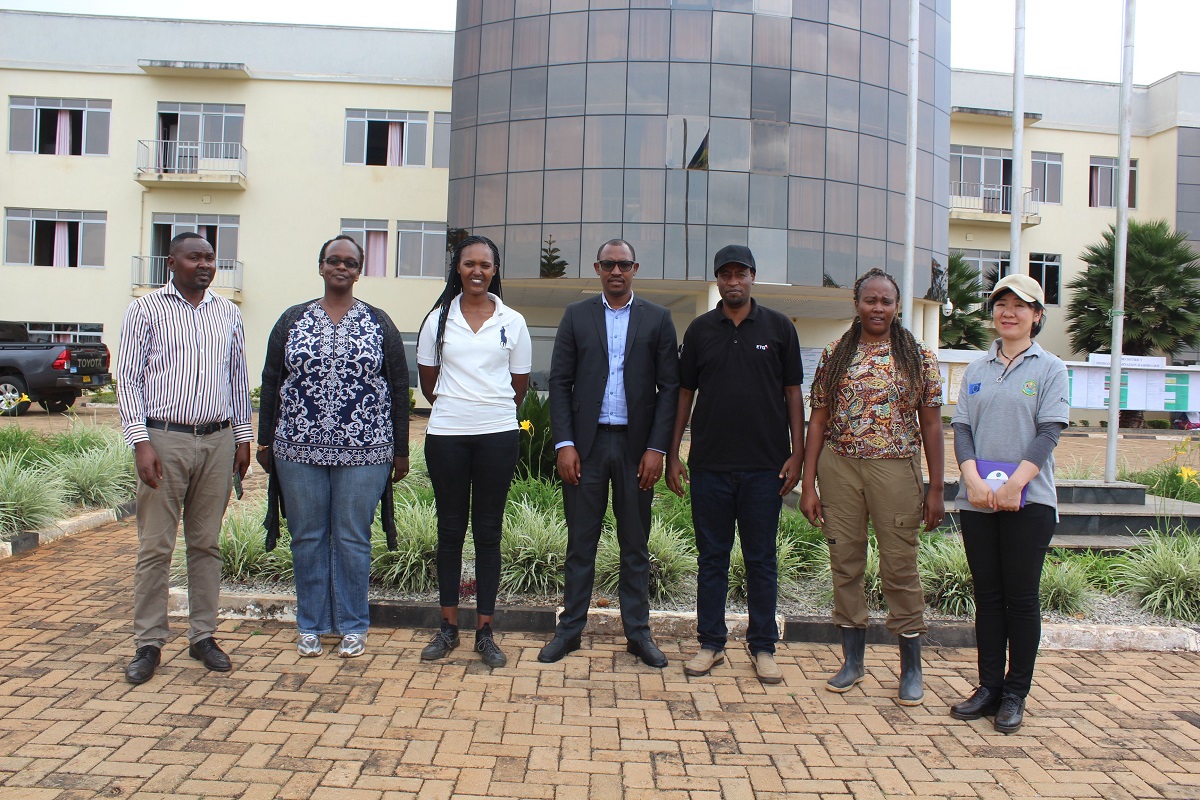 Photo: Sekanyange Jean Leonard, Vice mayor in charge of Economic Development, Gatsibo District with Kaori Yasuda, IUCN Rwanda Country Representative, Mugeni Kayitenkore, Programme Officer at EU, Gatesi Julienne, PhD Scholar at Ghent University etc.
Photo: Sekanyange Jean Leonard, Vice mayor in charge of Economic Development, Gatsibo District with Kaori Yasuda, IUCN Rwanda Country Representative, Mugeni Kayitenkore, Programme Officer at EU, Gatesi Julienne, PhD Scholar at Ghent University etc.
Disclaimer
Opinions expressed in posts featured on any Crossroads or other blogs and in related comments are those of the authors and do not necessarily reflect the opinions of IUCN or a consensus of its Member organisations.
IUCN moderates comments and reserves the right to remove posts that are deemed inappropriate, commercial in nature or unrelated to blog posts.
